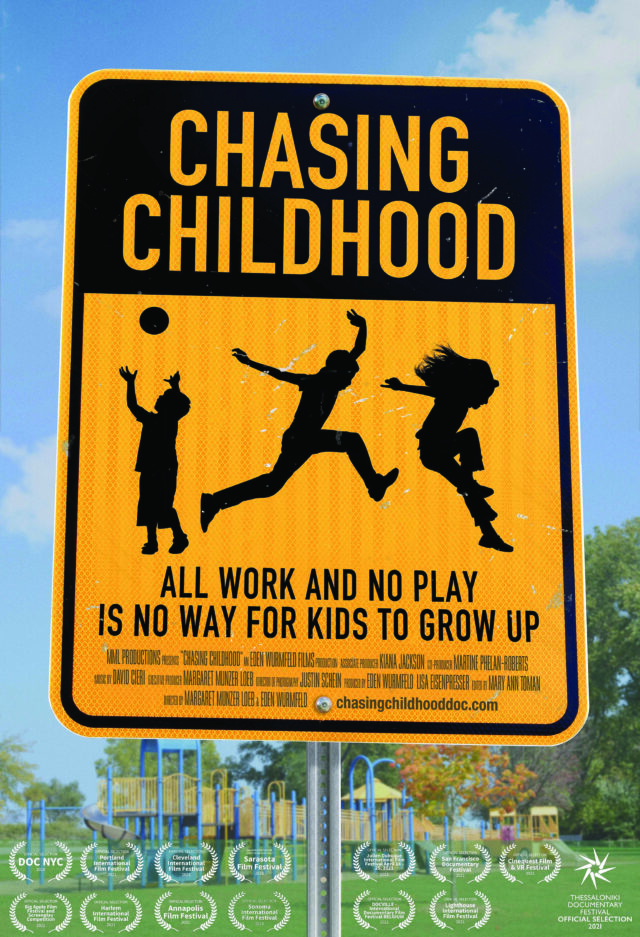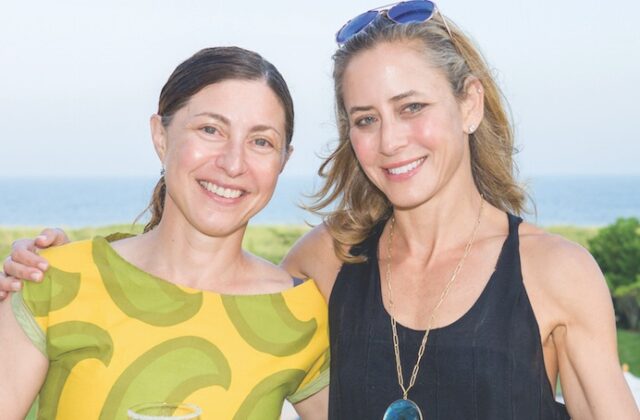 By Casey Brennan
By Casey Brennan
In a fast-paced world dominated by technology and structured routines, the documentary Chasing Childhood dares to question the traditional notions of childhood. Directed by Margaret Munzer Loeb and Eden Wurmfeld, this thought-provoking film explores the challenges faced by children in today’s society and advocates for a return to a more balanced, imaginative, and unstructured upbringing, challenging the status quo and prompting a reevaluation of childhood and mental health.
The idea for the film first came about during a casual conversation between Loeb and Wurmfeld, who were both raised in New York City and are now parents themselves (Loeb has three children, ages 12, 15 and 17, while Wurmfeld is a parent of two, ages 12 and 15). “We started to talk about raising kids and how different it was to how we grew up ourselves in NYC,” Loeb says. “We wondered ‘Is this new way right, and where is it leading us?’” Wurmfeld recalls being a latchkey kid by the time she was in grade school. “After the conversation, we went and did our own research,” she says. “And I found a pic of myself in first grade with a key around my neck.” Loeb recalls taking public transportation around the city—solo—by fourth grade. “What started as personal curiosity and anecdotal became ‘It’s not just us, and not NYC. Childhood has really changed,’” Wurmfeld adds.

The film presents powerful interviews with experts, parents and children, revealing the detrimental effects of these societal changes on young minds; it advocates for a paradigm shift, urging parents, educators and policymakers to reassess their approaches to raising children. Subjects in the film include Lenore Skenazy, a Patchogue, New York school superintendent, and a Wilton, Connecticut, activist mom, who all advocate for allowing kids to have more freedoms and spontaneous play as opposed to overscheduling and structured activities. Skenazy, a journalist, gained notoriety in 2008 after allowing her then-9-year-old son to ride the NYC subway alone; after her revelation, she was called “America’s Worst Mom.”
But instead of cowing to the criticism, Skenazy doubled down, writing the book Free-Range Kids and co-founding Let Grow, an organization that advocates free-range parenting. “All the worry in the world doesn’t prevent death; it prevents life,” quips Skenazy in one particularly memorable moment of the documentary.
Loeb and Wurmfeld took action with their own children, supporting freer schedules and resisting the pressure to have 24/7 programming. Wurmfeld suggests making the changes at an earlier age, when the stakes aren’t as high. “I want to tell people: Kids don’t have to be busy every day after school,” says Wurmfeld. “There is a value of play and being competent in the world and we help people connect to that. It’s a wild ride but I want kids to have fun, play and have free time. You only get one childhood.”
A screening of Chasing Childhood and a panel discussion with the filmmakers will be hosted by Project Most at Regal UA East Hampton on June 3 at 3PM.



